Dozens killed as Russia strikes military base 15 miles from Polish border
The facility was hit by cruise missiles and is thought to be the most westerly Ukraine target attacked during the war
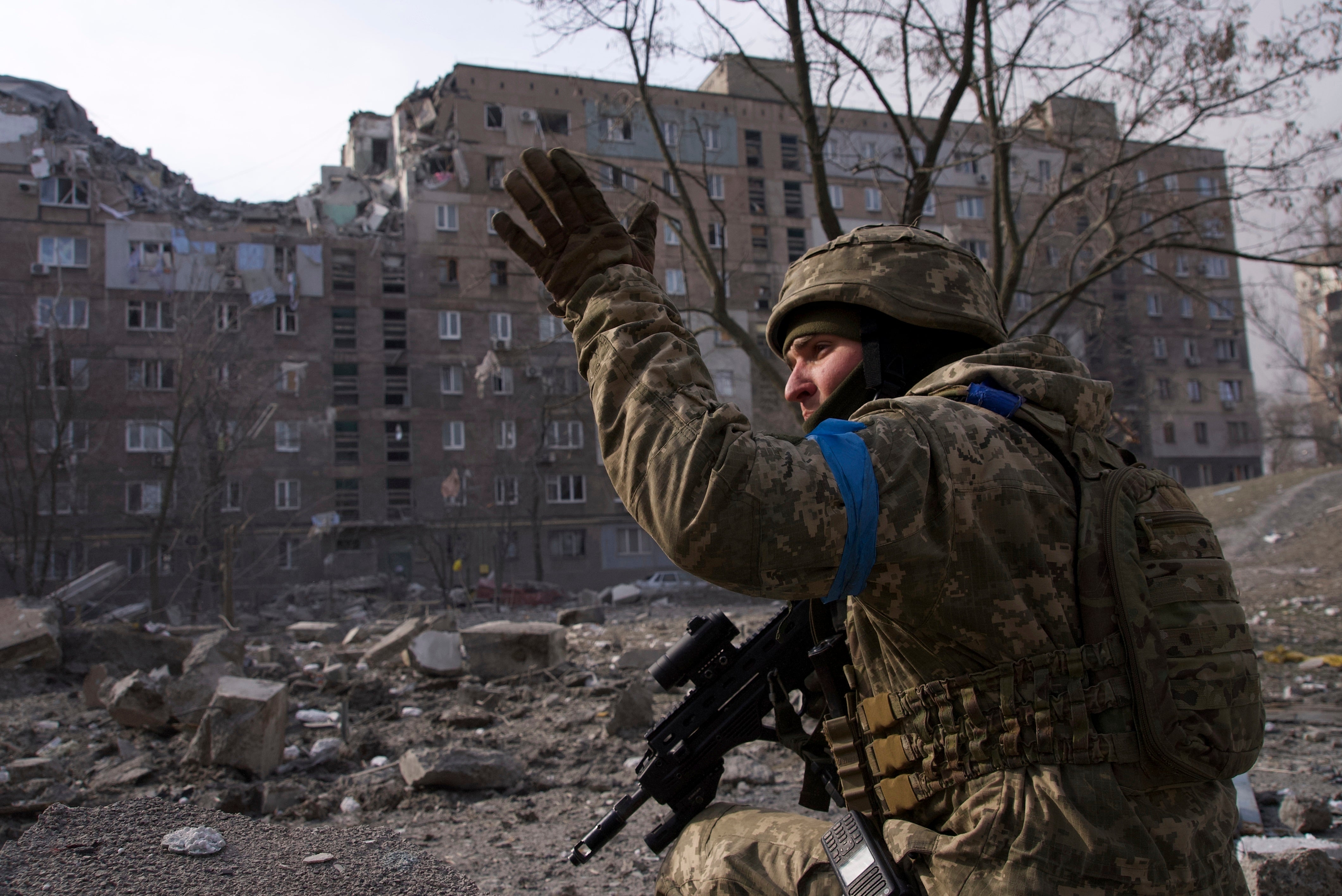
Your support helps us to tell the story
From reproductive rights to climate change to Big Tech, The Independent is on the ground when the story is developing. Whether it's investigating the financials of Elon Musk's pro-Trump PAC or producing our latest documentary, 'The A Word', which shines a light on the American women fighting for reproductive rights, we know how important it is to parse out the facts from the messaging.
At such a critical moment in US history, we need reporters on the ground. Your donation allows us to keep sending journalists to speak to both sides of the story.
The Independent is trusted by Americans across the entire political spectrum. And unlike many other quality news outlets, we choose not to lock Americans out of our reporting and analysis with paywalls. We believe quality journalism should be available to everyone, paid for by those who can afford it.
Your support makes all the difference.Dozens were killed in a missile strike close to the Ukrainian border with Nato member Poland yesterday in the most westerly attack yet by Russian forces.
The deadly strike came less than 24 hours after Russian threats to target foreign weapons shipments helping Ukrainian fighters defend their country.
More than 30 missiles targeted a training facility in Yavoriv, less than 25 kilometres (15 miles) from the Polish border, according to the governor of Ukraine’s western Lviv region. More than 130 people were injured.
It also signalled further attacks by Russia on the west of Ukraine. Since its invasion, Lviv had largely been spared the scale of destruction unfolding further east and become a destination for residents escaping bombarded cities and for many of the nearly 2.6 million refugees who have fled the country.
The training centre appears to be the most westerly target struck so far in the 18-day conflict. Poland is also a transit route for western military aid to Ukraine. An attack so close to the border is heavy with symbolism in a war that has revived Cold War rivalries that gave birth to Nato and threatens to rewrite the current global security order.
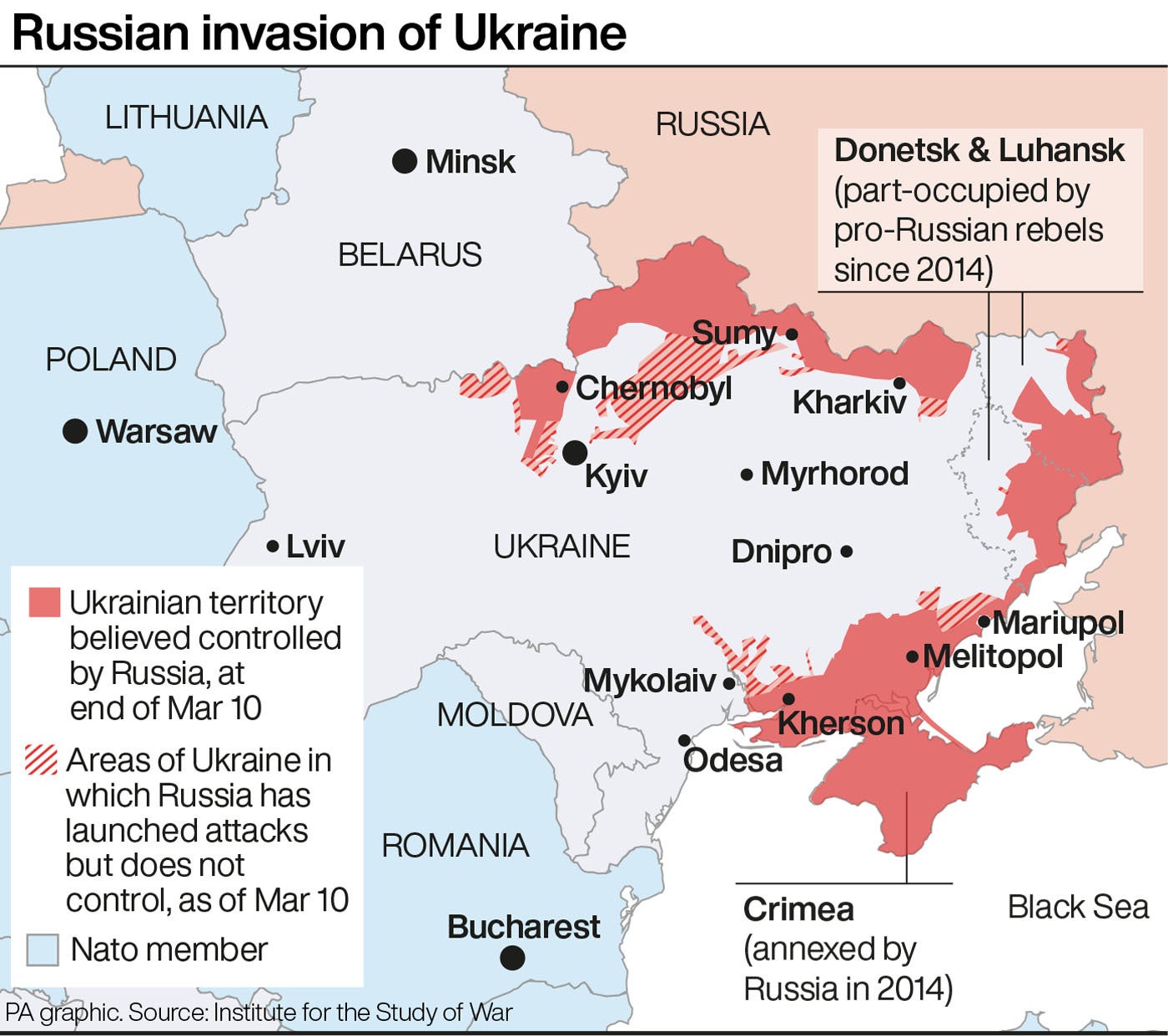
Russia claimed it had killed “up to 180 foreign mercenaries” and destroyed a large amount of weapons supplied by outside nations in the attack.
Defence ministry spokesperson Igor Konashenkov told a briefing that Russia would continue such attacks.
The facility, also known as the International Peacekeeping and Security Centre, has long been used to train Ukrainian military personnel, often with instructors from the US and other Nato countries. It has also hosted international Nato drills.
Poland’s president Andrzej Duda told the BBC on Sunday that he believes Russia could use chemical weapons as Vladimir Putin is in “a very difficult situation”, adding that it would be a “gamechanger”.
“Actually, politically, he has already lost his war and internally he is not winning it,” he added.
“For sure the North Atlantic alliance will have to sit at that table and really have to think seriously about what to do, because then it starts to be dangerous, not only for Europe, or our region, but the whole world.”
Regardless of Russian threats over western weapons going to Ukraine, the Czech Republic announced on Sunday that it would send another £24m of military aid to Ukraine.

Russian fighters also continued attacks on an airport in the western city of Ivano-Frankivsk, less than 150 kilometres (94 miles) north of Romania, another Nato country.
Fighting also raged in multiple areas of the country on Sunday. Ukrainian authorities said Russian airstrikes on a monastery and a children’s resort in the eastern Donetsk region hit spots where monks and refugees were sheltering, wounding 32 people.
Another airstrike hit a west-bound train evacuating people from the east, killing one person and injuring another, Donetsk’s chief regional administrator said. To the north, in the city of Chernihiv, one person was killed and another injured in a Russian airstrike that destroyed a residential block, emergency services said.
Around the capital, Kyiv, fighting also intensified, with overnight shelling in the northwestern suburbs and a missile strike that destroyed a warehouse. Chief regional administrator Oleksiy Kuleba said Russian forces appeared to be trying to blockade and paralyse the capital before any full assault.
“We’re getting ready to defend Kyiv, and we’re prepared to fight for ourselves,” he said.
On Saturday, Ukraine’s president Volodymyr Zelensky said Russia would have to raze the city “to the ground” to capture it.
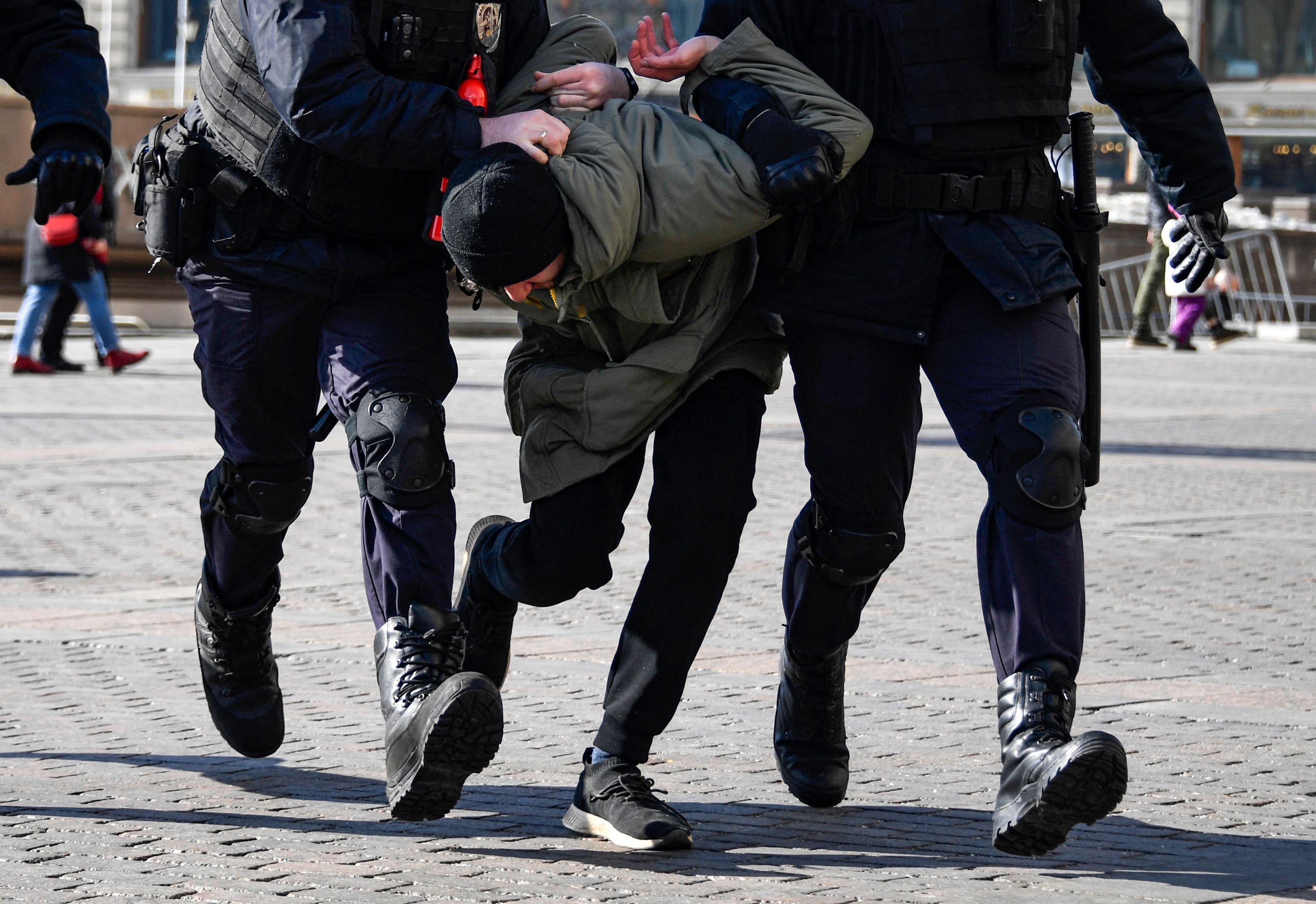
Brent Renaud, an American journalist, was killed in clashes on Sunday. The award-winning US filmmaker and former contributor to The New York Times, was fatally shot by Russian forces in Irpin, close to the capital, it was claimed by authorities in Ukraine.
Elsewhere, Russian soldiers pillaged a humanitarian convoy trying to reach the battered and encircled port city of Mariupol, where 2,187 people have been killed in fighting so far, a Ukrainian official said Sunday.
Ukraine’s military said Russian forces have captured Mariupol’s eastern outskirts, tightening their siege of the strategic port. Taking Mariupol and other ports on the Azov Sea could allow Russia to establish a land corridor to Crimea, which it seized from Ukraine in 2014.
Many civilians have been caught in the barrage, and Ukraine’s prosecutor general’s office said on Sunday that at least 85 children have been killed across the country in the war so far.
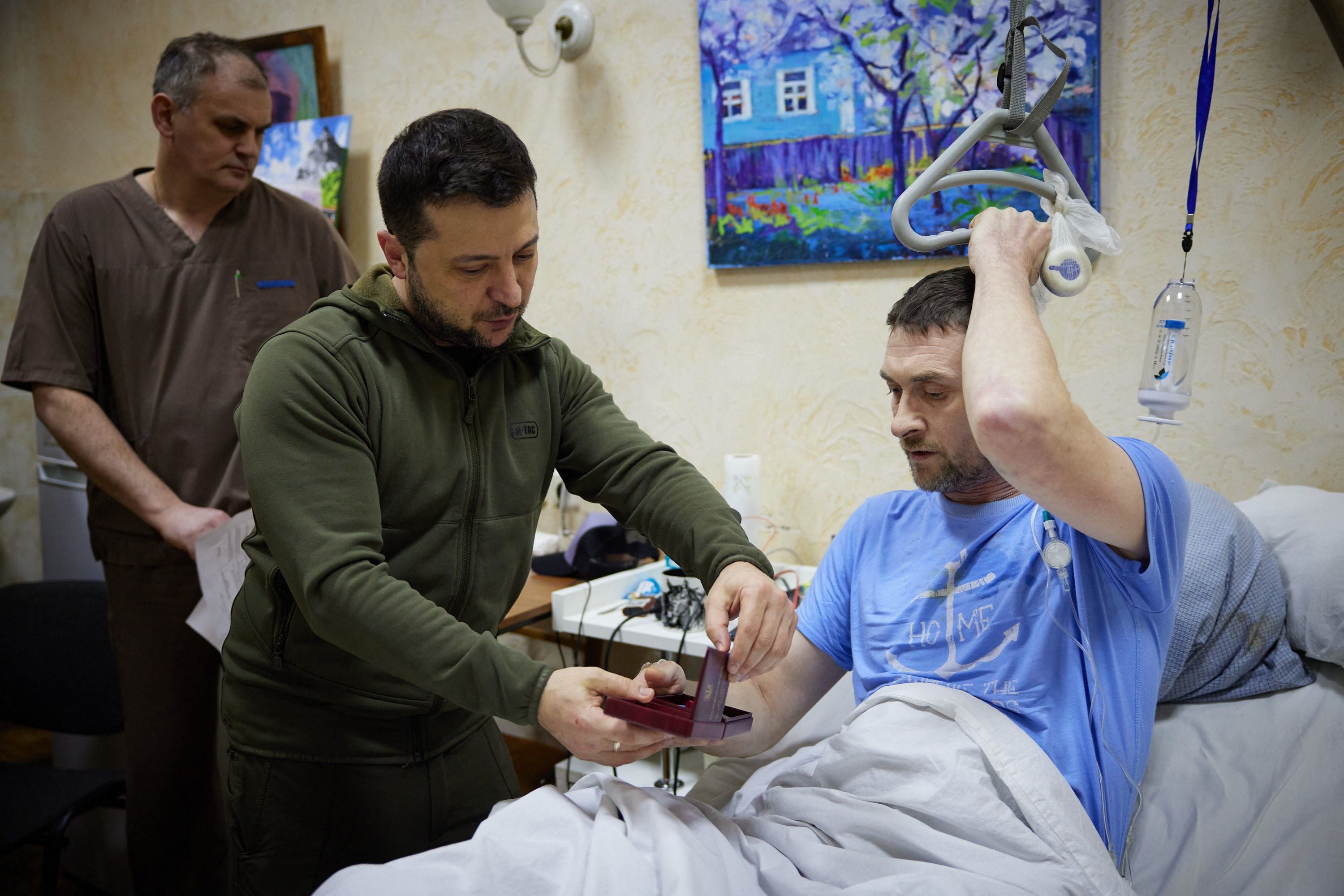
President Zelensky accused Russia of trying to break his country apart, as well as starting “a new stage of terror” with the alleged detention of a mayor from a city west of Mariupol.
“Ukraine will stand this test. We need time and strength to break the war machine that has come to our land,” Mr Zelensky said during his nightly address to the nation on Saturday.
Small, sporadic protests against the war continued in Russia, leading to several arrests.
In Italy, one person died and several were injured after a bus carrying 50 Ukrainians overturned.
In his Sunday address at the Vatican, the Pope called on Russia to stop its invasion.
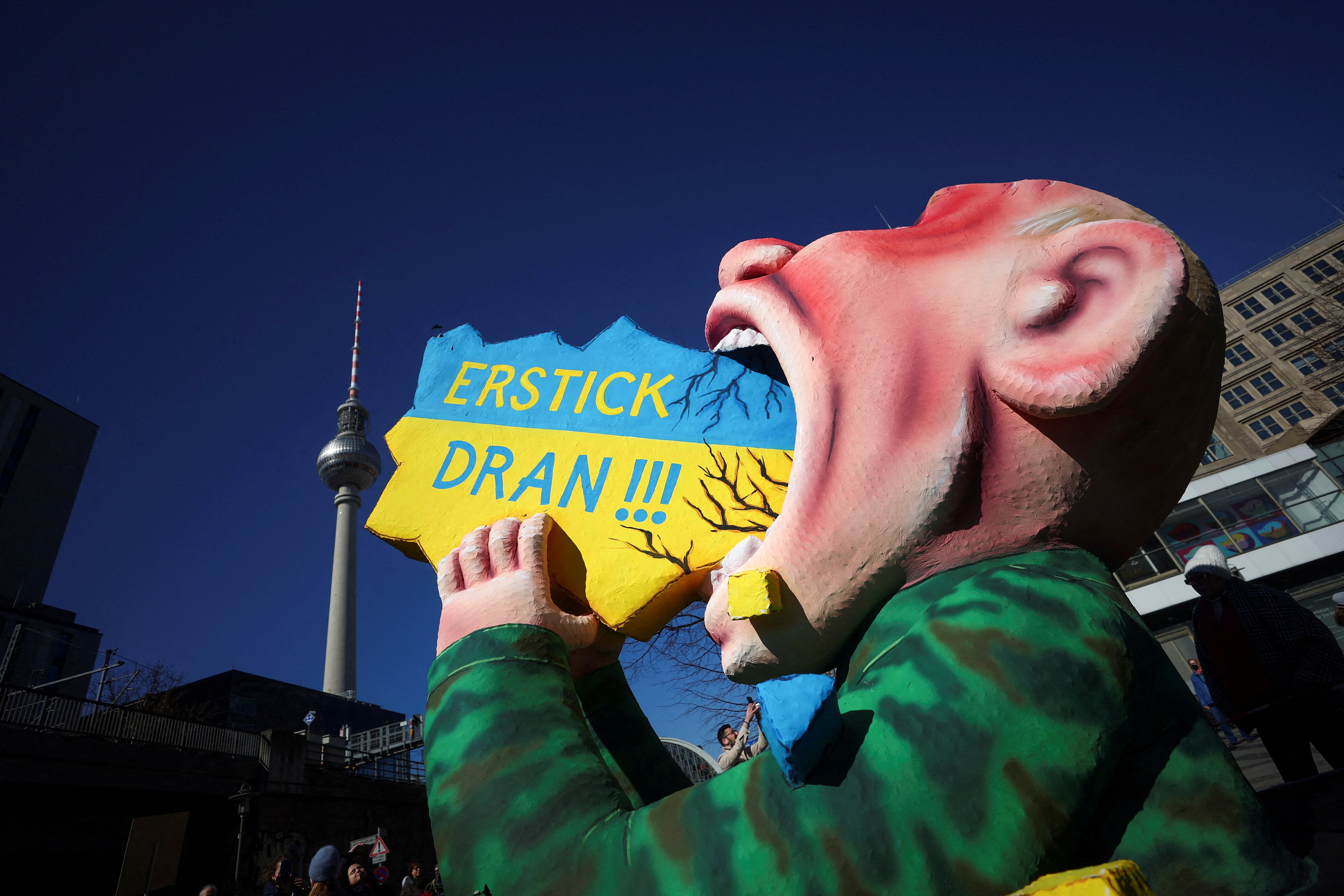
“In the name of God, I ask you, stop this massacre,” he said.
The Independent has a proud history of campaigning for the rights of the most vulnerable, and we first ran our Refugees Welcome campaign during the war in Syria in 2015. Now, as we renew our campaign and launch this petition in the wake of the unfolding Ukrainian crisis, we are calling on the government to go further and faster to ensure help is delivered. To find out more about our Refugees Welcome campaign, click here. To sign the petition click here. If you would like to donate then please click here for our GoFundMe page.
Join our commenting forum
Join thought-provoking conversations, follow other Independent readers and see their replies
Comments